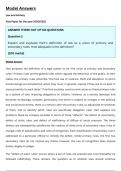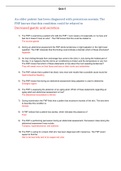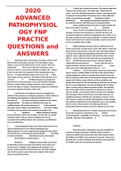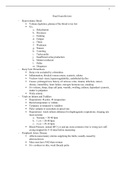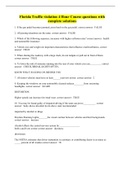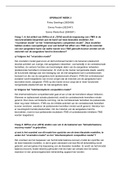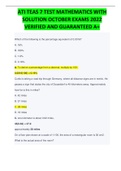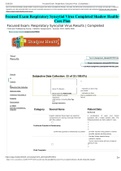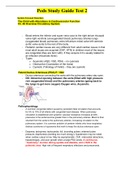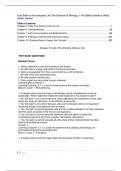Exam (elaborations)
Law & Society Past Paper with Model Answers 2020/2021
- Module
- Law & Society (LAW09106)
- Institution
- Edinburgh Napier University (ENU)
This document provides model answers to 3 questions taken from the 2020/2021 past paper for the Law & Society module. Author achieved a first class grade for the module.
[Show more]
